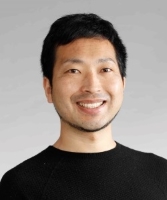Mikio Shimada
Affiliation
Laboratory of Molecular Pathology, Department of Molecular Biosciences
E-mail: shimada_m@rerf.or.jp
E-mail: shimada_m@rerf.or.jp
About
Dr. Shimada was appointed as the chief of the Laboratory of Molecular Pathology, Department of Molecular Bioscience in July 2025. Until now, he has been engaged in research on DNA repair pathways using cultured cells, mice, iPS cells, and tissue organoids as part of his research on radiation-responsive molecular carcinogenesis. In the future, he would like to develop molecular carcinogenesis research as well as conduct molecular pathology research using mouse and human pathological samples. He is a member of the Japanese Radiation Research Society, the Radiation Research Society (US), the Japanese Cancer Association, the Japanese Biochemical Society, and the Japan Radioisotope Association.
Education
- 2009
- Ph.D. Graduate School of Human and Environmental studies, Kyoto University
- 2004
- B.A. School of Agriculture and Animal Science, Obihiro University of Agriculture and Veterinary Medicine
Experience
- 2025-
- Chief, Laboratory of Molecular Pathology, Department of Molecular Biosciences Radiation Effects Research Foundation
- 2024-2025
- Assistant Professor, Laboratory for Zero-Carbon Energy, Institute of Integrated Research, Institute of Science Tokyo
- 2021-2024
- Assistant Professor, Laboratory for Zero-Carbon Energy, Institute of Innovative Research, Institute of Tokyo Technology
- 2016-2021
- Assistant Professor, Laboratory for Advanced Nuclear Energy, Institute of Innovative Research, Institute of Tokyo Technology
- 2015-2016
- Assistant Professor, Research Laboratory for Nuclear Reactor Engineering, Institute of Tokyo Technology
- 2011-2015
- Postdoctoral fellow, Department of Genetics, St Jude Children’s Research Hospital
- 2009-2011
- Postdoctoral fellow, Department of Genome Dynamics, Radiation Biology Center, Kyoto university
Selected publications
*Corresponding author- Live-cell imaging of DNA damage and cell cycle progression uncovers distinct responses during neural differentiation of hiPSCs.
Shimada M*, Matsumoto Y, Otsuka K. J Biol Chem. 2025 Jun 3;301(7):110328. - Antioxidants Ameliorates Ionizing Radiation-Induced Microcephaly in Cerebral Organoid Derived from Human-induced Pluripotent Stem Cells.
Shimada M*, Matsumoto Y. Radiat Res. 2025 Jun 1;203(6):410-420. - CDK-mediated phosphorylation of PNKP is required for end-processing of single-strand DNA gaps on Okazaki fragments and genome stability.
Tsukada K*, Imamura R, Miyake T, Saikawa K, Saito M, Kase N, Fu L, Ishiai M, Matsumoto Y, Shimada M*. Elife. 2025 Mar 27;14:e99217. - Dimethyl Sulfoxide Attenuates Ionizing Radiation-induced Centrosome Overduplication and Multipolar Cell Division in Human Induced Pluripotent Stem Cells.
Shimada M*, Hirayama R, Matsumoto Y. Radiat Res. 2024 Oct 1;202(4):719-725. - DNA Damage Response After Ionizing Radiation Exposure in Skin Keratinocytes Derived from Human-Induced Pluripotent Stem Cells.
Miyake T, Shimada M*, Matsumoto Y, Okino A. Int J Radiat Oncol Biol Phys. 2019 Sep 1;105(1):193-205. - Apurinic endonuclease-1 preserves neural genome integrity to maintain homeostasis and thermoregulation and prevent brain tumors.
Dumitrache LC, Shimada M, Downing SM, Kwak YD, Li Y, Illuzzi JL, Russell HR, Wilson DM 3rd, McKinnon PJ*. Proc Natl Acad Sci U S A. 2018 Dec 26;115(52):E12285-E12294. - Polynucleotide kinase-phosphatase enables neurogenesis via multiple DNA repair pathways to maintain genome stability.
Shimada M, Dumitrache LC, Russell HR, McKinnon PJ*. EMBO J. 2015 Oct 1;34(19):2465-80. - Aberrant topoisomerase-1 DNA lesions are pathogenic in neurodegenerative genome instability syndromes.
Katyal S, Lee Y, Nitiss KC, Downing SM, Li Y, Shimada M, Zhao J, Russell HR, Petrini JH, Nitiss JL, McKinnon PJ*. Nature Neurosci. 2014 Jun;17(6):813-21. - Inactivation of the Nijmegen breakage syndrome gene leads to excess centrosome duplication via the ATR/BRCA1 pathway.
Shimada M, Sagae R, Kobayashi J, Habu T, Komatsu K*. Cancer Res. 2009 Mar 1;69(5):1768-75.


